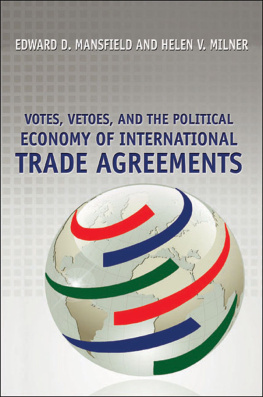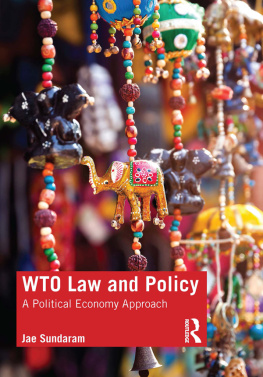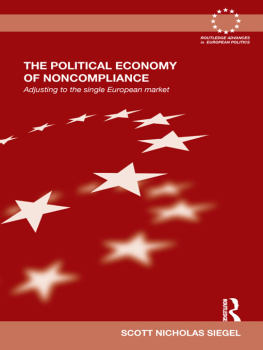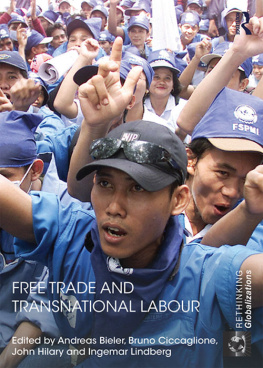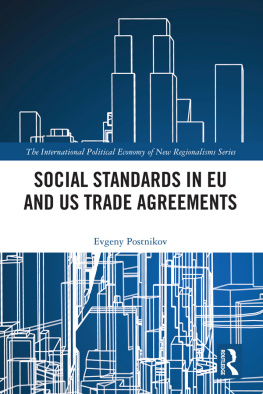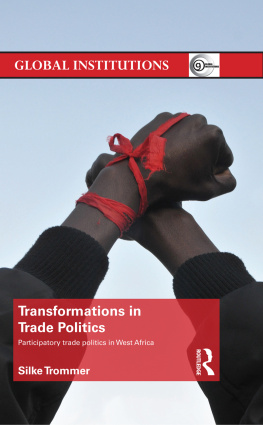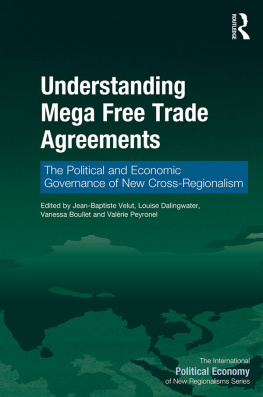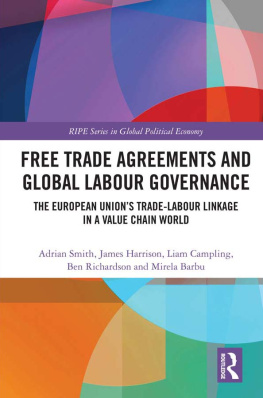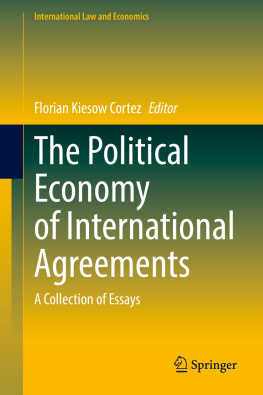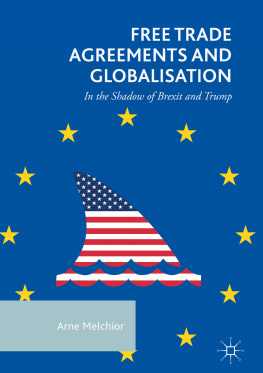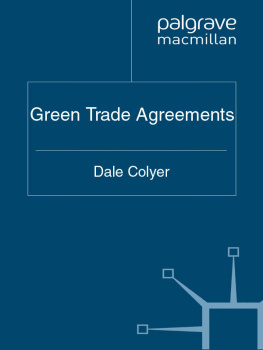Copyright 2012 by Princeton University Press
Published by Princeton University Press, 41 William Street, Princeton, New Jersey 08540 In the United Kingdom: Princeton University Press, 6 Oxford Street, Woodstock, Oxfordshire OX20 1TW
press.princeton.edu
All Rights Reserved
Library of Congress Cataloging-in-Publication Data
Mansfield, Edward D., 1962
Votes, vetoes, and the political economy of international trade agreements / Edward D. Mansfield and Helen V. Milner.
p. cm.
Includes bibliographical references and index.
ISBN 978-0-691-13529-8 (hardcover : alk. paper)ISBN 978-0-691-13530-4 (pbk. : alk. paper) 1. Commercial treaties. 2. International trade. I. Milner, Helen V., 1958 II. Title.
HF1721.M36 2012
382'.9dc23
2011040447
British Library Cataloging-in-Publication Data is available
This book has been composed in Minion Pro
Printed on acid-free paper.
Printed in the United States of America
10 9 8 7 6 5 4 3 2 1
Preface and Acknowledgments
SINCE THE CONCLUSION OF WORLD WAR II, there has been a proliferation of international trade agreements. Social scientists have expressed substantial interest in the sources of this development. Many economists have argued that the roots of these agreements lie in the promise they hold for improving the welfare of signatories. Other researchers posit that trade agreements are a response to global political conditions. The role of domestic politics, however, has received short shrift in the literature on this topic. In this book, we argue that domestic politics provides a crucial impetus to the decision by governments to enter trade pacts. Of particular importance in this regard are the regime type and the number of veto players that exist in each country. Democracies are especially likely to enter trade agreements, and such agreements become increasingly unlikely as the number of veto players within prospective members increases, for reasons that we explain in the coming pages.
This book has been a long time in the making. In the 1990s, we had been working separately on the domestic sources of international cooperation (Milner 1997; Milner and Rosendorff 1996 and 1997) and the political economy of regionalism and preferential trade agreements (PTAs) (Mansfield 1993 and 1998). We joined forces in an effort to analyze how domestic politics affects cooperation on international trade. In the many years spent working on this topic, we have accumulated a large number of debts, but we are particularly grateful to two individuals. Some of our initial work on the political economy of trade was conducted with B. Peter Rosendorff (Mansfield, Milner, and Rosendorff 2000 and 2002). Later we wrote a set of papers covering some of the issues addressed in this book with Jon Pevehouse (Mansfield, Milner, and Pevehouse 2007 and 2008). Both Peter and Jon are wonderful collaborators, enormously talented researchers, and good friends. We are grateful for their many contributions to this book.
We also owe a large debt of gratitude to a remarkable group of individuals who helped us conduct the research included in this study. Raymond Hicks worked tirelessly to compile the database of PTA ratification dates that we use. He, David Francis, and Rumi Morishima also helped us to conduct much of the data analysis in this book. More recently, Torben Behmer and Sarah Salwen helped us to edit the book manuscript, and Jason McMann provided research assistance. We thank all of them profusely.
We are also indebted to a large number of scholars who commented on all or parts of this book. In September 2009, we held a book conference at which Joanne Gowa, Robert Keohane, Lisa Martin, Ronald Rogowski, Peter Rosendorff, Kenneth Scheve, Jack Snyder, and Michael Tomz gave us many excellent comments and suggestions. Indeed, they furnished us with so many that it took over a year to revise the manuscript and even then we were able to address only a fraction of the terrific ideas that surfaced during that event. We are deeply thankful that this highly distinguished group was willing to furnish their time and expertise. This book is surely much improved because of their insights.
Further, we have benefited from many other individuals who commented on all or part of the book over the past decade. We thank many of the fellows at Princeton Universitys Niehaus Center for Globalization and Governance who endured reading parts of the book: Terry Chapman, Gke Gktepe, Susan Hyde, Stephen Kaplan, Basak Kus, Adam Luedtke, Heather McKibben, Andreea Mihalache, Krzysztof Pelc, Christina Schneider, and T. Camber Warren. In addition, Leonardo Baccini, David Baldwin, Christina Davis, Henrik Horn, Mareike Kleine, Marc Meredith, Rumi Morishima, Ben Shepard, Dustin Tingley, Johannes Urpelainen, and Kate Weiss offered us many helpful suggestions. We also received useful feedback at a conference held by the World Trade Organization (WTO) in November 2010, at a 2009 conference held at the Stanford Law School, and at a seminar at the University of California, San Diego in 2009.
This study could not have been completed without the support of the University of Pennsylvania and Princeton University. We are especially grateful to University of Pennsylvanias Christopher H. Browne Center for International Politics and to Princetons Niehaus Center for financial and logistical assistance. Pat Trinity at the Niehaus Center deserves special thanks for her strong administrative support.
Princeton University Press editor Chuck Myers offered us encouragement and thoughtful advice over the many years it has taken to complete this book. We thank him for his editorial expertise, patience, and good humor.
Portions of the book have appeared elsewhere and we are grateful to the publishers of these earlier articles for allowing us to use them here. In particular, a portion of appeared in Regime Type, Veto Points, and Preferential Trading Arrangements, Stanford Journal of International Law, (46) 2 (June 2010), 21942.
Our greatest debts are to our families. Mansfield thanks Charlotte Mansfield, Katherine Mansfield, and Andra Castro. They have been a source of love, support, and perspective. Equally, they have been remarkably gracious when work on this book has crowded out other tasks. I am especially grateful to Charlotte for her persistent queries about the books progress and her unflagging encouragement when I inevitably responded that it was going slower than planned.
Milner thanks David Baldwin, without whom this book could not have been written. He provided the space and intellectual nourishment to allow me to finish this many-year project. I owe him a deep debt of thanks. Having been chair of the department when most of this was written meant that I had little time for anything else, and David made sure that everything was taken care of so I could find the time.

